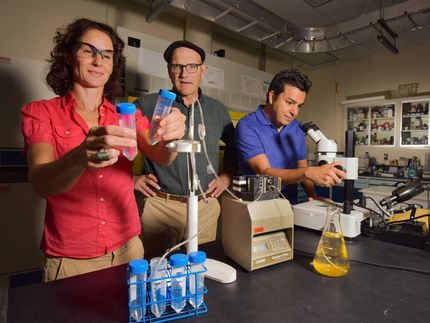Evonik puts new silica plant into operation in Brazil
Investment volume in mid-double-digit million euro range
Evonik Industries put its precipitated silica production plant in Americana (São Paulo, Brazil) into operation on July 20, 2016. This high-growth silica is used mainly for low rolling resistance tires. In addition, by building this new silica production plant, Evonik is also catering to the needs of the growing regional business in specialty segments in South America’s food, animal feed, and agricultural industries. This is the first plant for easy dispersible silica (HD silica) to come on stream in South America. Evonik’s investment for this plant is in the mid-double-digit euro range.
Ralph Sven Kaufmann, Executive Board member and Chief Operating Officer of Evonik Industries: "With this investment in Brazil we are strengthening our position in South America as a global provider of high-quality silica for resource-conserving applications. We are also consolidating our leading global market position in silica."
The tire industry in the region profits from the growth in the automotive industry, which has recorded considerable increases in sales in South America over the past years. The market for low rolling resistance tires and, consequently, for HD silicas, has been growing much stronger than the market for conventional tires in South America. Evonik expects additional demand because of the planned labeling of the energy efficiency of tires in Brazil.
The use of silica in combination with silanes means that tires can be produced with a much lower rolling resistance, which can reduce fuel consumption by up to eight percent (compared to conventional automobile tires). Consequently, low rolling resistance tires contribute towards climate protection. Johannes Ohmer explained: "We are the only manufacturer that offers both components and are thus an expert partner for high-performance tire compounds for our customers in the tire and rubber industries."
Most read news
Other news from the department manufacturing

Get the chemical industry in your inbox
By submitting this form you agree that LUMITOS AG will send you the newsletter(s) selected above by email. Your data will not be passed on to third parties. Your data will be stored and processed in accordance with our data protection regulations. LUMITOS may contact you by email for the purpose of advertising or market and opinion surveys. You can revoke your consent at any time without giving reasons to LUMITOS AG, Ernst-Augustin-Str. 2, 12489 Berlin, Germany or by e-mail at revoke@lumitos.com with effect for the future. In addition, each email contains a link to unsubscribe from the corresponding newsletter.



























































